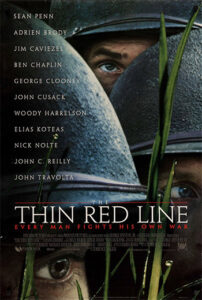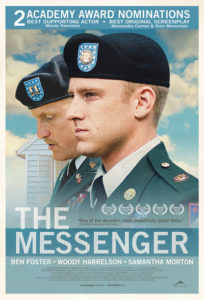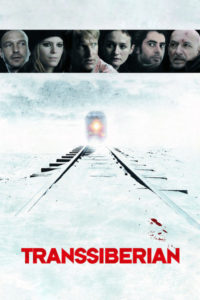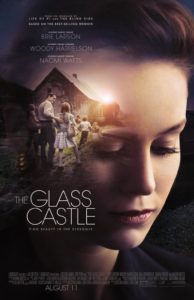
Love or hate him, Terrence Malick has a unique style. Personally, he’s not for me.
The New World was a decent enough film, but it left me wanting more. I had such high hopes for
The Tree of Life, only for it to result in one of my most frustrating and tedious theater-going experiences ever, that I was ready to write him off. However, there is often an anomaly. For me, it was his devastatingly beautiful portrayal of World War II in 1998’s
The Thin Red Line. Rightfully or not,
The Thin Red Line will forever be associated and compared with
Saving Private Ryan, another World War II-based Best Picture nominee of 1998. And, if I’m being 100% honest, I did not know that
Malick directed the Thin Red Line until after I finished watching it.
Continue reading The Thin Red Line (1998) →
 No Country for Old Men is the most well-received and critically acclaimed adaptation of a Cormac McCarthy (my favorite author) novel. There have been six. The Road is, by far, my favorite McCarthy novel and a movie masterpiece. The others are the slightly underrated All the Pretty Horses, the disappointing box office flop The Counselor, the virtually unseen Child of God, and The Sunset Limited, a film I still need to see. No Country for Old Men is the only McCarthy-adapted film to receive an Oscar, earning eight nominations and four wins, including the first nomination and win in Best Achievement in Directing for Hollywood darlings Joel and Ethan Coen.
No Country for Old Men is the most well-received and critically acclaimed adaptation of a Cormac McCarthy (my favorite author) novel. There have been six. The Road is, by far, my favorite McCarthy novel and a movie masterpiece. The others are the slightly underrated All the Pretty Horses, the disappointing box office flop The Counselor, the virtually unseen Child of God, and The Sunset Limited, a film I still need to see. No Country for Old Men is the only McCarthy-adapted film to receive an Oscar, earning eight nominations and four wins, including the first nomination and win in Best Achievement in Directing for Hollywood darlings Joel and Ethan Coen.
 No Country for Old Men is the most well-received and critically acclaimed adaptation of a Cormac McCarthy (my favorite author) novel. There have been six. The Road is, by far, my favorite McCarthy novel and a movie masterpiece. The others are the slightly underrated All the Pretty Horses, the disappointing box office flop The Counselor, the virtually unseen Child of God, and The Sunset Limited, a film I still need to see. No Country for Old Men is the only McCarthy-adapted film to receive an Oscar, earning eight nominations and four wins, including the first nomination and win in Best Achievement in Directing for Hollywood darlings Joel and Ethan Coen.
No Country for Old Men is the most well-received and critically acclaimed adaptation of a Cormac McCarthy (my favorite author) novel. There have been six. The Road is, by far, my favorite McCarthy novel and a movie masterpiece. The others are the slightly underrated All the Pretty Horses, the disappointing box office flop The Counselor, the virtually unseen Child of God, and The Sunset Limited, a film I still need to see. No Country for Old Men is the only McCarthy-adapted film to receive an Oscar, earning eight nominations and four wins, including the first nomination and win in Best Achievement in Directing for Hollywood darlings Joel and Ethan Coen.
 Love or hate him, Terrence Malick has a unique style. Personally, he’s not for me. The New World was a decent enough film, but it left me wanting more. I had such high hopes for The Tree of Life, only for it to result in one of my most frustrating and tedious theater-going experiences ever, that I was ready to write him off. However, there is often an anomaly. For me, it was his devastatingly beautiful portrayal of World War II in 1998’s The Thin Red Line. Rightfully or not, The Thin Red Line will forever be associated and compared with Saving Private Ryan, another World War II-based Best Picture nominee of 1998. And, if I’m being 100% honest, I did not know that Malick directed the Thin Red Line until after I finished watching it.
Love or hate him, Terrence Malick has a unique style. Personally, he’s not for me. The New World was a decent enough film, but it left me wanting more. I had such high hopes for The Tree of Life, only for it to result in one of my most frustrating and tedious theater-going experiences ever, that I was ready to write him off. However, there is often an anomaly. For me, it was his devastatingly beautiful portrayal of World War II in 1998’s The Thin Red Line. Rightfully or not, The Thin Red Line will forever be associated and compared with Saving Private Ryan, another World War II-based Best Picture nominee of 1998. And, if I’m being 100% honest, I did not know that Malick directed the Thin Red Line until after I finished watching it.
 Somewhere inside Oren Moverman’s (Time Out of Mind,
Somewhere inside Oren Moverman’s (Time Out of Mind,  At eight days, the Transsiberian Express from Beijing to Moscow is the longest train journey in the world. So why wouldn’t it be the perfect backdrop to one of the most suspenseful journeys in quite some time? Paul Anderson’s (Beirut, The Machinist) presents the Transsiberian in a way that makes you think of Alfred Hitchcock. It’s dark. It’s moody. It’s twisted. It’s purposeful. It’s rooted. It’s intense. It makes you feel like a fellow passenger on this train, watching everything unfold next to you rather than on a screen projected in front of you. Oh. And it’s cold. It’s like an Arctic cold. We feel that sense of dread in the deepest of winter in the coldest places. Yet, it never feels like we are even close to approaching freezing. So it certainly adds to the ambiance of our film.
At eight days, the Transsiberian Express from Beijing to Moscow is the longest train journey in the world. So why wouldn’t it be the perfect backdrop to one of the most suspenseful journeys in quite some time? Paul Anderson’s (Beirut, The Machinist) presents the Transsiberian in a way that makes you think of Alfred Hitchcock. It’s dark. It’s moody. It’s twisted. It’s purposeful. It’s rooted. It’s intense. It makes you feel like a fellow passenger on this train, watching everything unfold next to you rather than on a screen projected in front of you. Oh. And it’s cold. It’s like an Arctic cold. We feel that sense of dread in the deepest of winter in the coldest places. Yet, it never feels like we are even close to approaching freezing. So it certainly adds to the ambiance of our film.
 2017 has been a year that started as strong as any year in recent memory when it comes to movies. From the January and February box office smashes of Split (which I didn’t like) and
2017 has been a year that started as strong as any year in recent memory when it comes to movies. From the January and February box office smashes of Split (which I didn’t like) and